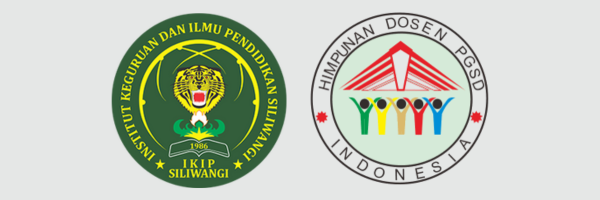THE EFFECT OF THE HANDS ON ACTIVITY LEARNING MODEL ON SCIENCE PROCESS SKILLS IN ELEMENTARY SCHOOL STUDENTS
DOI:
https://doi.org/10.22460/pej.v5i2.2719Abstract
This study aims to determine the effect of the application of the Hands on Activity learning model that is applied in elementary schools (SD) on natural science subjects (IPA), the research method used in this study is quasi-experimental where the research design used was a nonrandomized pretest-posttest control group design, the sample in this study was all third grade students at SDN Cikupa as the experimental group and grade III students at SDN Linggamekar as the control group. the average test for science subjects and the school environment that have similarities. The results of the study were obtained based on the calculation of the average difference in the t test, the P-value (Sig.2-tailed) = 0.343, so the P-value value >𛼠which means that H0 cannot be rejected. This can be interpreted that there is no difference in the average final ability of students' science process skills between the experimental and control groups. However, based on the results of the KPS observations that have been tested by U Ngain m, it shows that the U test scores Sig. (2-tailed) = 0.000 then H0 is rejected, this means that there is a significant difference in increasing science process skills between learning using the Hands on Activity model and the conventional model. So, it can be concluded that learning using Hands on Activity on object motion material is influenced by shape and size better than learning using a conventional approach that includes lecture, question-and-answer and experimental methods.
Keywords:Â Science learning, science process skills, hands on activity.
References
Apriliani, R. P., Alvia, M., Agustin, R., Lesmana, R., & Rahayu, G. (2018). CLIS (children learning in science) model on scours of science student process on learning science of science knowledge in elementary school. 1(1), 6.
Asha, D. I. K., & Hawi, A. M. A. (2016). The Impact of cooperative Llearning on developing the sixth grade students decision-making skill and academic achievement. Journal of Education and Practice, 7(10), 60–67.
Ate, Ö., & Eryilmaz, A. (2011). Effectiveness of hands-on and minds-on activities on students’ achievement and attitudes towards physics. EURASIA Journal of Mathematics, Science and Technology Education, 17(5), 1962. https://doi.org/10.29333/ejmste/10856
Borg, G. G. (2014). Applying Educational Research: How to Read, Do, and Use Research to Solve Problems of Practice (Sixth Edition). Pearson.
Firdaus, A. R., & Rahayu, G. D. S. (2019). Effect of STEM-based Learning on the Cognitive Skills Improvement. Mimbar Sekolah Dasar, 6(2), 198. https://doi.org/10.17509/mimbar-sd.v6i2.17562
Karacop, A., & Diken, E. H. (2017). The effects of jigsaw technique based on cooperative learning on prospective science teachers’ science process skill. Journal of Education and Practice, 8(6), 86–97.
Kelana, J. B. (2018). The effect of the learning media and the ability to think creative of to the ability to science literacy student of elementary school. PrimaryEdu - Journal of Primary Education, 2(2), 79. https://doi.org/10.22460/pej.v2i2.1008
Kibga, E. S., Gakuba, E., & Sentongo, J. (2021). Developing students curiosity through chemistry hands-on activities: A case of selected community secondary schools in Dar es salaam, Tanzania. Eurasia Journal of Mathematics, Science and Technology Education, 17(5), em1962. https://doi.org/10.29333/ejmste/10856
Kubischta, F. (2014). Engagement and Motivation: Questioning students on study- motivation, engagement and study strategies. University of applied sciences.
Levy, Y., & J. Ellis, T. (2011). A guide for novice researchers on experimental and quasi-experimental studies in information systems research. Interdisciplinary Journal of Information, Knowledge, and Management, 6, 151–161. https://doi.org/10.28945/1373
Rahayu, G. D. S., & Nugraha, F. F. (2018). Effect of cooperative learning model type team game tournament (tgt) on cross-cultural skills in learning science social knowledge in primary school. PrimaryEdu - Journal of Primary Education, 2(1), 63. https://doi.org/10.22460/pej.v1i1.671
Witarsa, R., Rahayu, G. D. S., Sriningsih, N., & Tellusa, S. (2017). Meningkatkan kemampuan aspek psikomotorik siswa sekolah dasar melalui hands on activity di kota Cimahi. 1, 11.












